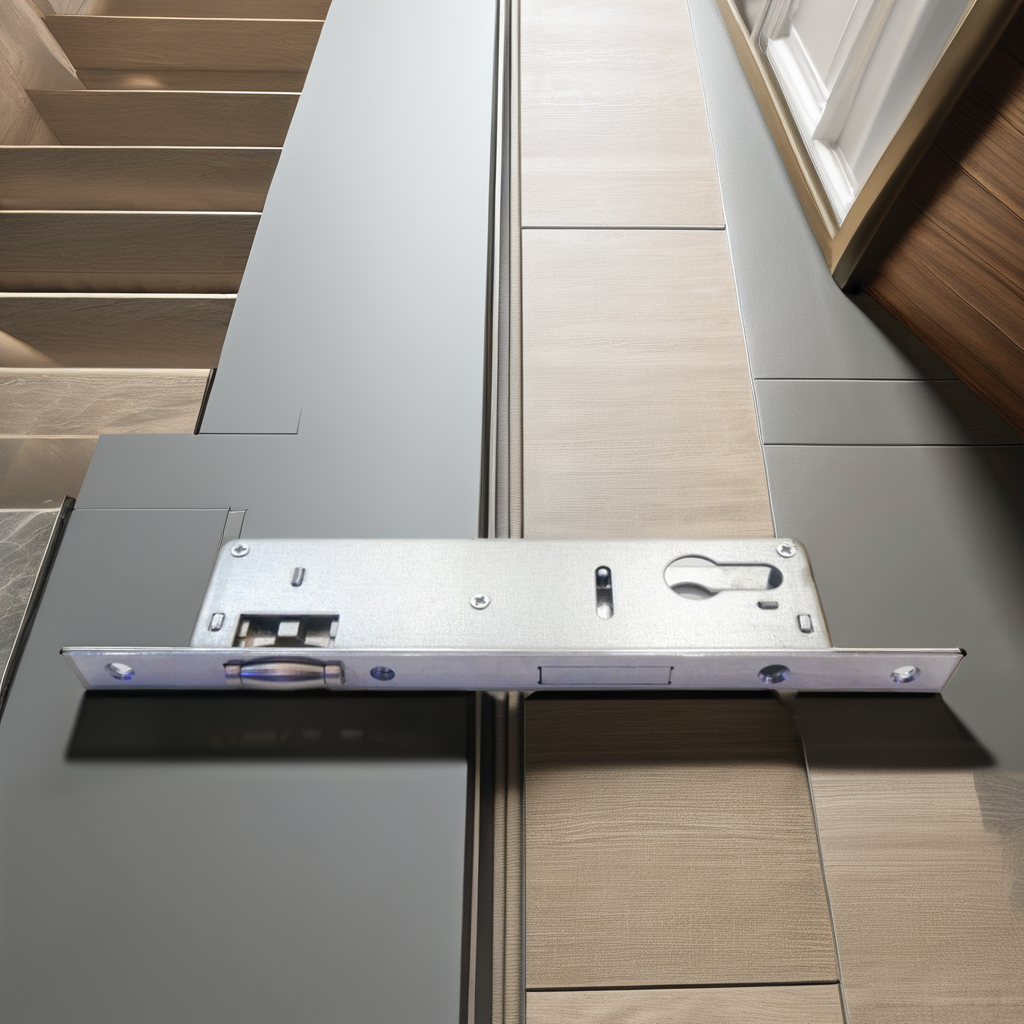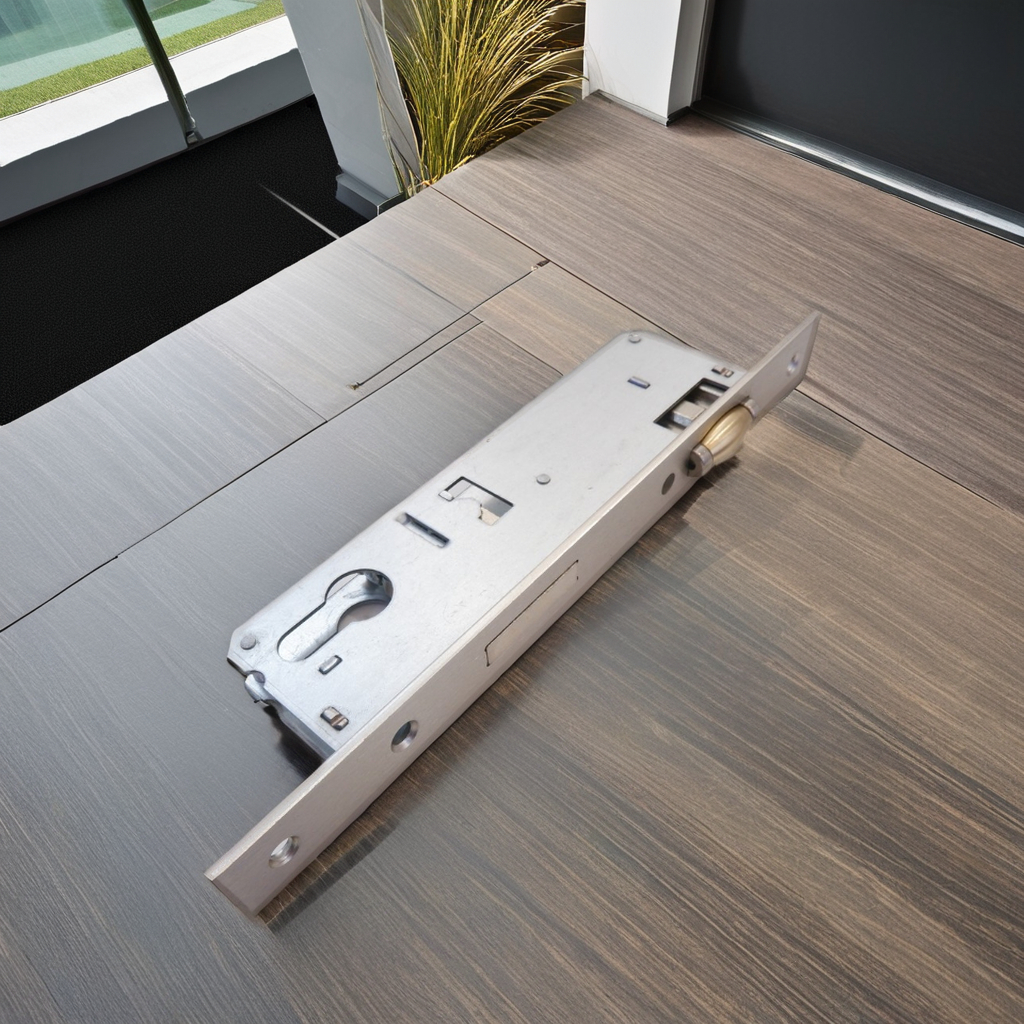Views: 0 Author: Site Editor Publish Time: 2025-08-19 Origin: Site








Choosing the right door hinge might seem simple, but it’s essential for the door’s durability and function. Have you ever wondered why certain hinges work better for specific doors? In this post, we’ll guide you through the 5 Things to Consider When Choosing Door Hinges. From material to security needs, you’ll learn how to make the best decision for your door’s performance and aesthetics.

Hinges are essential components for doors and other moving parts, allowing them to swing open and closed. They support the door’s weight and determine how smoothly it operates. The right hinge choice affects not just functionality but also safety and the aesthetic of the space.
When selecting a hinge, you need to consider factors like the material, weight, and usage environment. For example, heavy doors need strong hinges, while humid areas may require corrosion-resistant options. Aesthetics matter too, as hinges should complement the door's design.
In this post, we’ll explore the key elements you need to consider when choosing the right door hinge for your needs. We'll cover everything from door material and weight to security features and compliance with safety standards.
The material of your door greatly impacts the type of hinge you’ll need. Whether it’s wood, metal, or glass, each material has different weight and strength characteristics. For example, heavier materials like metal require stronger hinges to support the weight, while lighter materials like wood can handle standard hinges.
The weight of the door is equally important. A heavy door needs a hinge capable of bearing that weight without causing sagging or other issues. The right hinge ensures smooth operation and prevents unnecessary wear on the door frame.
When dealing with heavy doors, such as those made from solid wood or metal, you’ll need durable hinges. Ball-bearing hinges and pivot hinges are ideal for heavy-duty applications. These hinges can handle more weight, reduce friction, and provide smoother movement. For example, if you have a steel or solid wood door, opting for these robust hinges will ensure long-lasting performance.
For lighter doors made from materials like hollow core wood or glass, you can go for standard hinges. Butt hinges work well for these doors since they don’t bear as much weight and still allow smooth opening and closing. Choosing standard hinges for light doors ensures that you don’t overpay for unnecessary strength.
A general rule of thumb is one hinge per 30 inches of door height. So, a 6-foot door would typically need at least two hinges. However, the door’s weight also plays a role. Heavier doors may require additional hinges to support the load and ensure proper movement.
In busy spaces like commercial buildings, hinges face a lot of wear and tear. These environments demand durable hinges that can withstand constant use without failing. For areas such as offices, schools, and hospitals, ball-bearing hinges and heavy-duty butt hinges are ideal since they reduce friction and last longer. Materials like stainless steel and brass are also excellent choices due to their strength and longevity in high-traffic settings.
For exterior doors exposed to harsh weather conditions, stainless steel and brass hinges are crucial. These materials offer great corrosion resistance, which is essential in areas that experience rain, snow, or intense sunlight. In humid areas like bathrooms or kitchens, where moisture can rust regular hinges quickly, choosing corrosion-resistant options ensures long-lasting performance.
Some doors require more specialized hinges, such as those for security doors, vaults, or fire-rated doors. For high-security environments, tamper-proof or concealed hinges are a must. These provide extra security by preventing unauthorized access. Fire-rated doors also require specific hinges that comply with safety regulations, often featuring self-closing mechanisms to prevent the spread of fire. Additionally, for privacy-sensitive areas, choosing hinges that reduce visibility and enhance security is essential.

When choosing hinges, it’s important to match their finish with the door hardware and overall design. Whether your space has a modern, classic, or rustic style, the right hinge finish can complement the décor perfectly. For example, satin nickel, oil-rubbed bronze, and brass finishes can enhance the look of various door types. A well-chosen hinge finish adds to the overall visual appeal and helps tie together the design elements of a room.
Concealed hinges are perfect for those who prefer a minimalist, sleek look. These hinges are hidden when the door is closed, giving your door a smooth, seamless appearance. They're especially popular in modern spaces and high-end cabinetry where the focus is on clean lines and subtle details. By using concealed hinges, you can maintain the beauty of the door without any visible hardware disrupting the design.
In contrast, visible hinges can add character and charm to more traditional or industrial settings. For rustic or farmhouse-style homes, heavy-duty butt hinges in antique brass or steel might work best. These visible hinges not only serve a functional purpose but also enhance the aesthetics of the space, contributing to the overall vintage or industrial vibe.
For homes or businesses, concealed and tamper-proof hinges provide added security by hiding the hinge components, making them harder to tamper with. These hinges are ideal for areas that require extra protection, like storage rooms or offices with valuable assets. They help prevent unauthorized access and ensure doors are secure even when not locked.
Fire-rated doors play a crucial role in fire safety, and the right hinge is essential. These doors require specific types of hinges, like self-closing hinges, to meet safety standards. Spring hinges are also used in fire-rated doors to ensure they close automatically and prevent fire spread. Compliance with fire safety regulations ensures better protection in case of an emergency.
Certain buildings, like government offices, banks, or secure storage areas, need hinges that offer both durability and security. For high-security applications, tamper-proof or reinforced hinges are highly recommended. These hinges are designed to resist break-ins, adding an extra layer of protection. Non-removable pin hinges are also a good option for such buildings, ensuring that the pin cannot be easily removed, even if someone tries to force the hinge open.
A fire-rated hinge is designed to meet strict fire safety standards. These hinges prevent the door from warping or failing during a fire, keeping it intact for longer. Hinges like spring hinges are often used on fire-rated doors because they ensure the door closes automatically, helping to seal off a room in case of a fire. Choosing the right hinge is crucial for maintaining the integrity of fire-rated doors and ensuring safety.
Building codes like the Americans with Disabilities Act (ADA) require hinges to support easy door operation for all people, including those with disabilities. For example, non-binding hinges or spring-loaded hinges make it easier to open and close doors, especially for those using wheelchairs or walkers. These hinges help meet accessibility standards and ensure smooth, safe access for everyone.
In environments like hospitals or schools, hinge durability is critical. Doors in these locations need to withstand high traffic while maintaining safety standards. Heavy-duty hinges are necessary for doors that need to remain functional and secure, especially in areas where safety is a priority. Reliable hinges prevent failure during emergency situations and ensure continued use over time.
When choosing a hinge, the material is crucial for durability and performance. Common materials include stainless steel, brass, aluminum, and bronze.
Stainless Steel is rust-resistant and perfect for outdoor or high-moisture environments.
Brass has a polished, golden finish and is ideal for decorative purposes, though it may tarnish over time.
Aluminum is lightweight and corrosion-resistant, making it suitable for lightweight doors and outdoor use.
Bronze offers strength and corrosion resistance, making it ideal for high-traffic areas or outdoor settings.
Each material works best in specific climates and environments, like UV-resistant materials for sunny areas or rust-resistant materials for coastal regions.
Hinge size depends on the door's weight, thickness, and height. A larger, heavier door requires a stronger, larger hinge. For residential use, a 3.5-inch butt hinge is common, while commercial applications may need 4-inch or larger hinges for extra support. It's important to choose the right size to ensure smooth operation and prevent strain on the door frame.
Selecting the right fasteners is essential for secure hinge installation. Typically, hinges use wood screws or metal screws, depending on the door material. For heavy doors, longer screws are recommended for a tighter hold.
Installation requires tools like a screwdriver and level to ensure proper alignment. Be sure to use the correct number of screws (usually two to three for each hinge) and space them evenly to avoid misalignment or stress on the hinge.
When choosing door hinges, consider the material, weight, environment, aesthetics, and security needs. Each factor impacts the hinge's performance and durability. Prioritize these elements based on your specific needs to ensure a functional and visually appealing door.